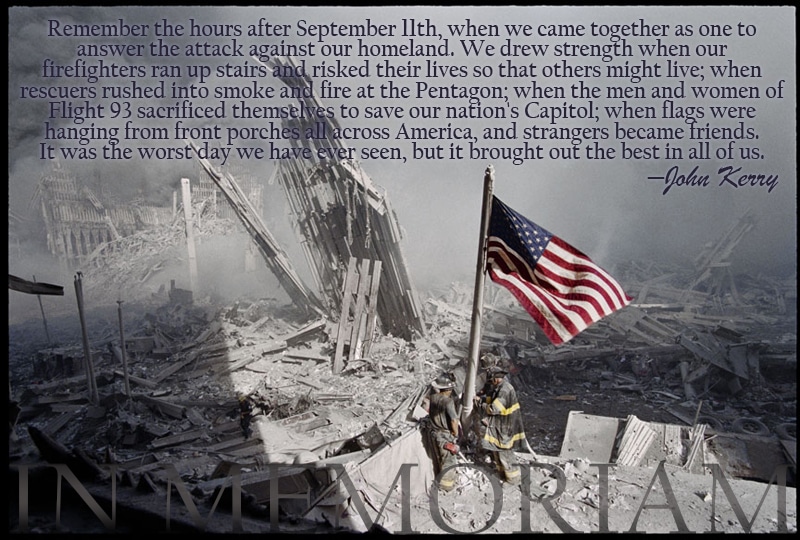
I retreated a block to Park Row, where stunned people covered in dust were boarding a city bus to escape the area. People fleeing the World Trade Center area, on Broadway, after the collapse of the South Tower and before the collapse of the North Tower. He told me later that he was sure I was dead. My late father, who knew I'd rushed to the towers, watched the explosion from a Chinatown coffee shop where he had gone for breakfast. Scraps of paper drifted in the wind, and the headstones of the cemetery next to St. The bright blue sky had been replaced by twilight gloom. When we emerged, the entire world had changed. For long minutes, we struggled to find another exit from that building, hopefully onto the next street, anywhere that was farther away.

I ran with a few police officers and firefighters into the basement of an office building, thinking the tower might fall on top of us. The South Tower was exploding with an enormous cloud of flame and gray smoke bursting out. I was looking down to reload one of my cameras when people around me on the sidewalk started screaming. "I think this will be a long day, don't expect to hear from me until late," I said to my then-partner as I headed out the door, as if this were simply a serious, but not necessarily desperate, crisis.Īfter the collapse of the South Tower, a man tried to make a phone call inside a building on Vesey Street.
911 memory pictures for facebook cover full#
(The broadcast antenna itself was on top of the World Trade Center and no longer working.) The full import of what was occurring had not yet set in.
911 memory pictures for facebook cover tv#
I turned on the TV but couldn't get any reception except for one faint, fuzzy station with a live feed. From my apartment on Manhattan's Lower East Side, I could already hear sirens from emergency vehicles barreling downtown. My late brother, Bonlap, was calling from Michigan to say planes were striking the Twin Towers. It was the ringing telephone that woke me up. But I was home in New York on September 11, 2001. Those were years when I traveled a lot as a photojournalist: China, the Balkans, Afghanistan and Central Asia, Israel and Palestine. My internet was dial-up and I was driving a 1987 Mazda.

I had a cellphone, but not a digital camera. I think back to that September day in New York, and the six months that came after - when I traveled to Afghanistan, to witness the early months of the war, and then to Cuba, to see the Guantánamo Bay prison. Twenty years is a long time, long enough to forget what the texture of daily life was like. See more stories on Insider's business page.Twenty years later, the photographer Alan Chin recalls those events and the images he captured.Soon, prisoners began arriving at Guantánamo.

US troops entered Afghanistan less than a month later.From the first moments after the September 11, 2001, attacks, journalists were on the scene.Account icon An icon in the shape of a person's head and shoulders.


 0 kommentar(er)
0 kommentar(er)
